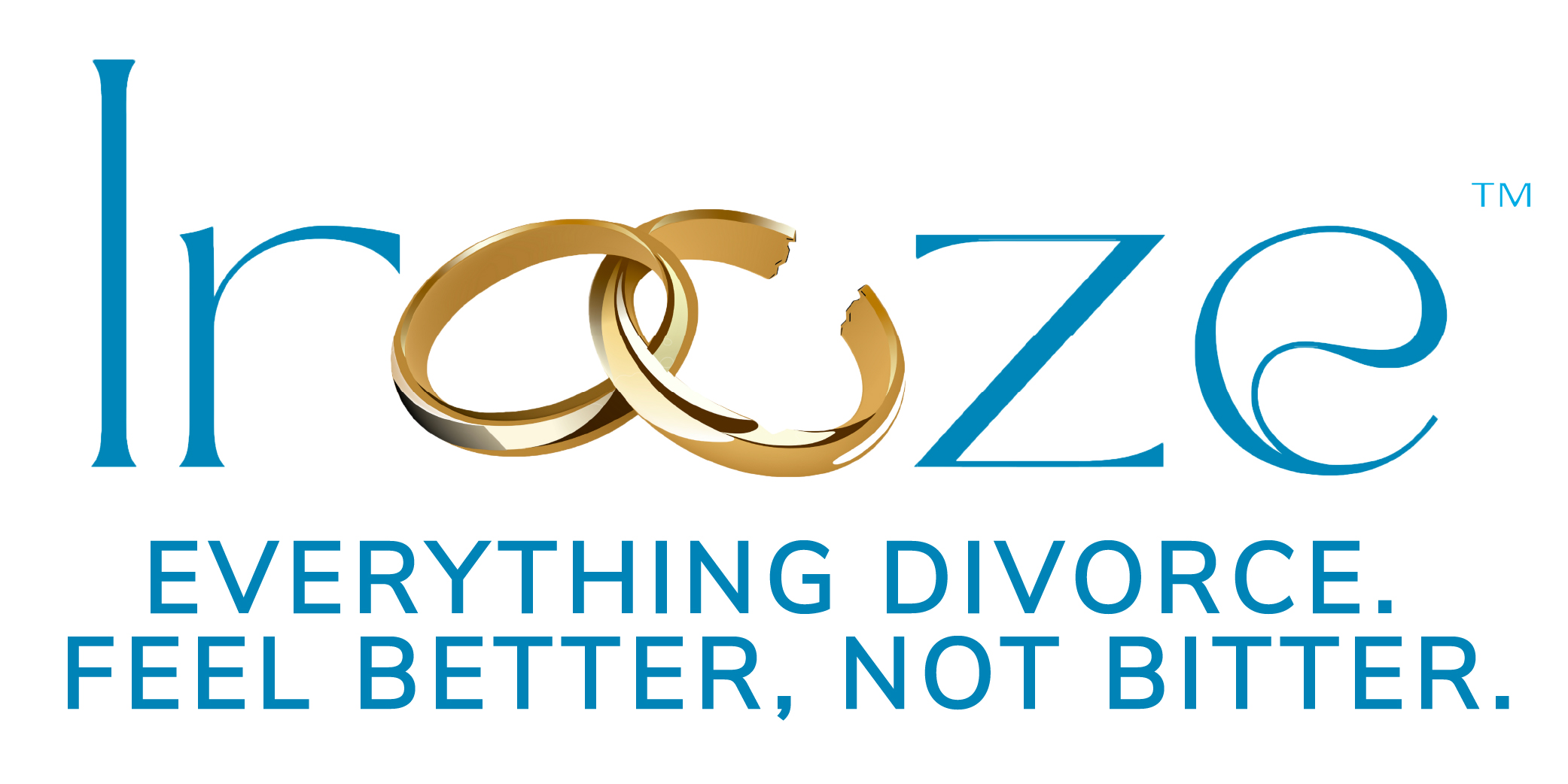Divorce can be emotionally draining and financially overwhelming. As you navigate the end of your marriage, it’s common to feel pulled in different directions—between legal battles, emotional turmoil, and mounting bills. However, learning to let go of certain emotions and adopting practical divorce coping strategies can help you keep legal costs down and maintain your emotional well-being during the process.
Coping with divorce emotionally requires conscious effort and support. Whether you’re feeling overwhelmed, angry, or lost, acknowledging these emotions is the first step toward emotional recovery after divorce. Understanding how to manage emotions during divorce can help you stay focused and make clear-headed decisions.
The feeling of your world upside down is a clear indication that you may need to find healthy ways to dealing with the many emotions and “different feelings” you may be experiencing. Some days you may feel sad or feel anxious. Not everyone processes the same way. Sit with it. As you rebuild your new life, it may take a little while until you feel like you are moving forward.
One of the most effective ways to manage stress during this time is by joining divorce support groups, and especially those tailored to women. These communities provide emotional validation, practical advice, and a reminder that you’re not alone in your journey.
Take it day by day and make major decisions from a calm space. spend time recreating the new you, get enough sleep and mange your stress levels by keeping these tips and strategies in mind:
How Emotional Decision-Making During Divorce Increases Legal Costs
Divorce often comes with a flood of emotions—anger, sadness, resentment, fear—that can cloud judgment and lead to decisions driven by feelings rather than practicality. When these emotions influence your choices, they can prolong legal battles, increase attorney fees, and lead to unnecessary expenses. The longer you spend fighting over small details, the more your bills escalate.
By managing your emotions and practicing letting go, you can make more rational decisions that save you both time and money.
A key part of managing emotions during divorce is learning how to emotionally detach from your ex. This doesn’t mean suppressing your feelings, but rather shifting your focus from the relationship to your own healing, which allows you to regain a sense of control over your life.
Letting Go of Control During Divorce: Releasing Perfection and Expectations
One of the hardest lessons in an impending divorce is recognizing that you can’t control everything, especially your ex’s behavior. The desire to have the “perfect” outcome or to win every argument can prolong the divorce process and drive-up legal fees.
Divorce is one of the most challenging life transitions, filled with emotional highs and lows. As women navigate this difficult journey, one of the hardest lessons is coming to terms with the reality that they cannot control everything—especially their ex’s behavior. The desire for a “perfect” outcome, to win every argument, or to control how divorce plays out can not only prolong the process but also lead to spiraling legal fees and emotional exhaustion. Learning to let go of control is crucial, both for your mental health and for ensuring a smoother, more cost-effective divorce.
What You Can and Can’t Control in Divorce, and How to Practice Self-Compassion

Dragging out negotiations over small details—like who gets the blender or a favorite piece of furniture—can be costly. Divorce is an emotional process, but every extra hour you spend debating minor issues with your lawyer is another hour of billing.
When going through a divorce, many women feel compelled to control every aspect of the process, especially when dealing with a former spouse. It’s a natural response when everything feels uncertain and your life as you know it is unraveling. However, trying to control things that are beyond your reach—like your ex’s behavior or the decisions they make—can lead to endless frustration.
It’s important to differentiate between what you can and cannot control:
- You can control your own responses: You have the power to control how you react to situations, how you engage with your ex, and how you approach the divorce process.
- You cannot control your ex’s actions: Whether it’s how they communicate, their financial decisions, or how they try to manipulate the situation, you don’t have control over them.
Once you recognize the limits of your control, you can channel your energy into areas where you have more influence. For instance, staying calm and measured in your communication can prevent escalation and help move the process forward. Taking charge of your financial planning and preparing for court deadlines gives you a sense of ownership and reduces anxiety about the unknown.
To stay financially grounded, use this comprehensive credit score checklist for divorce to protect your credit and plan for post-divorce financial stability.
Journaling during divorce can be a powerful outlet to track emotional progress and recognize patterns. Writing your thoughts daily can help you identify triggers, clarify your feelings, and shift your mindset from reactive to reflective.
If you’re divorcing a narcissistic or toxic ex, letting go of the need for validation is even more crucial. In such cases, prioritize boundaries, minimize direct communication, and seek guidance from professionals experienced in high-conflict divorce.
Dealing with Negative Emotions in Divorce: Why Control Makes It Worse
Many women in divorce unknowingly sabotage their own progress by focusing too much on controlling the outcome. It’s normal to operate at a less than optimal level while processing intense feelings during a divorce. This often happens through:
- Engaging in unnecessary conflict: Arguing over every minor detail, especially when it involves emotions rather than practical matters, can prolong the divorce process. Each disagreement often means more legal meetings, mediation sessions, and even court appearances. The longer the conflict drags on, the higher your legal fees will rise.
- Seeking validation or revenge: Some women are driven by the need to prove they were “right” or to ensure their ex “pays” for their wrongdoings. While these feelings are understandable, they can cloud your judgment and keep you stuck in a cycle of conflict. In the end, neither party “wins,” and the emotional toll can be devastating.
- Holding onto unrealistic expectations: Hoping for a perfect division of assets or believing that you can maintain the same lifestyle post-divorce often leads to disappointment. Letting go of rigid expectations allows for more flexibility and compromise, which speeds up the process and reduces costs.
Real Divorce Story: How Control and Grief Drove Up Legal Costs
Consider the case of Emily, a client who found herself in an endless battle with her ex-husband, Michael, during their divorce proceedings. Emily was determined to have full custody of their children and felt that she needed to challenge every single decision Michael made regarding their upbringing, despite advice to the contrary.
She spent thousands of dollars on legal fees trying to win arguments over parenting schedules, after-school activities, and even the location of family holidays. Every time Michael countered with his own demands, Emily dug in her heels, convinced that if she just fought hard enough, she could control the outcome.
Emily’s determination to control every aspect of the divorce prevented her from acknowledging the grieving process that accompanies the end of a marriage.
The result was a divorce that dragged on for two years, with court appearances becoming routine and legal fees ballooning to over $50,000. The emotional toll on both Emily and her children was severe, and even though she eventually secured a favorable custody arrangement, the process left her feeling exhausted, broke, and full of regret. In the end, she realized that much of the conflict could have been avoided if she had learned to let go of control and focus on what truly mattered: her well-being and her children’s happiness.
Emily later shared that the turning point came when she stopped focusing on winning and started focusing on finding a resolution that worked for her and her children. She shifted her mindset, let go of needing to control every aspect, and found that the process moved much faster and with less stress once she made that change.
Benefits of Letting Go During Divorce: Emotional Healing and Moving Forward

Letting go of the need to control every aspect of your divorce can lead to surprising benefits:
- Faster Resolution: When you let go of minor disputes and focus on the bigger picture, the divorce process often moves more quickly. By focusing on compromise, you can avoid lengthy court battles and contentious negotiations.
- Lower Legal Fees: Arguing over every point of contention means more billable hours for attorneys. By letting go of unnecessary conflicts, you reduce the time spent on legal matters, which significantly reduces your fees.
- Better Co-Parenting Relationships: If children are involved, it’s crucial to maintain a cooperative relationship with your ex. Constant conflict can strain that relationship and make co-parenting difficult. Letting go of control helps you focus on creating a healthier dynamic for the sake of your children.
- Peace of Mind: Divorce is inherently stressful, but constantly trying to control what you can’t will only add to that stress and exacerbate negative feelings. Letting go allows you to focus on your own well-being, regain your sense of peace, and begin to move forward with your life.
Letting go isn’t easy, especially in such an emotionally charged situation. However, there are several strategies that can help:
- Seeking Support with a Divorce Coach: A divorce coach can help you navigate the emotional aspects of divorce, teaching you to manage your reactions and prioritize what matters most. Coaches provide the tools needed to let go of control and help you approach the healing process and painful feelings with a level head.
- Set Clear Priorities: Focus on what truly matters—whether that’s the well-being of your children, securing a fair financial settlement, or maintaining your emotional health. When you have clear priorities, it’s easier to let go of things that aren’t important.
- Practice Mindfulness: Techniques like meditation or deep breathing exercises can help reduce anxiety and prevent you from getting caught up in the need for control. Staying present allows you to react calmly and thoughtfully in difficult situations. Practicing self compassion can also help reduce the negative emotions and help you see things exactly the way they are.
- Work with Your Family Law Attorney and Your Divorce Coach on Strategy: Rather than fighting every battle, work with your attorney to prioritize what’s worth contesting and what’s better to let go. This will help streamline the process and minimize costs.
Divorce is rarely simple, and the emotions involved can make it feel overwhelming. But one of the most powerful steps you can take is learning to let go of control. By focusing on what you can control—your own actions, mindset, and well-being—you’ll find that the process moves more smoothly, your legal fees are more manageable, and you can begin the next chapter of your life with confidence and peace.
If you’re wondering how this differs from traditional therapy, here’s a helpful breakdown of how a divorce coach can support your healing more effectively than therapy.
Practical Steps to Emotionally Navigate Divorce and Reduce Legal Stress
- Focus on what matters most: Identify your non-negotiables (e.g., custody, key assets) and be willing to compromise on less important issues. This reduces conflict and speeds up the process.
- Resist the urge to micromanage: Trust your attorney to handle the legal details. Avoid getting bogged down in minor disagreements that won’t significantly impact your future.
- Accept imperfection: Understand that divorce outcomes are rarely perfect. Focus on finding a fair resolution that allows you to move forward, even if it’s not exactly what you envisioned.
Self-Care During Divorce: How to Protect Your Mental and Emotional Health
Taking care of oneself during the divorce process is crucial for maintaining emotional and mental well-being. It’s essential to prioritize self-care and engage in activities that promote relaxation and stress reduction. Here are some tips for taking care of oneself during this challenging time:
- Practice Self-Compassion: Be kind and understanding towards yourself as you navigate the divorce process. Acknowledge your feelings and allow yourself to process them in a healthy way. Practicing self-compassion can help you manage negative emotions and see things exactly the way they are, without harsh self-judgment.
- Engage in Physical Activity: Regular exercise can help reduce stress and anxiety. Find an activity that you enjoy, such as walking, running, or yoga, and make it a regular part of your routine. Physical activity not only boosts your mood but also improves your overall health.
- Connect with Others: Reach out to friends, family members, or a support group for emotional support. Sharing your feelings with others can help you feel less isolated and more supported. Divorce support groups can be particularly helpful, as they provide a space to connect with others who are going through similar experiences.
- Prioritize Sleep: Getting enough sleep is essential for maintaining emotional and mental well-being. Aim for 7-8 hours of sleep per night and establish a consistent sleep routine. Quality sleep can help you better manage the complex emotions that arise during the divorce process.
- Eat a Healthy Diet: Fuel your body with nutritious foods that promote energy and well-being. Avoid sugary and processed foods that can exacerbate stress and anxiety. A balanced diet can help you feel more energized and better equipped to handle the challenges of the divorce process.
By prioritizing self-care, you can navigate the divorce process with greater ease and promote your emotional and mental well-being.
Unhealthy Coping Mechanisms to Avoid During Divorce, and What to Do Instead
During the divorce process, it’s common to feel overwhelmed and tempted to turn to unhealthy coping mechanisms. However, these behaviors can exacerbate stress and anxiety, making it more challenging to navigate the divorce process. Here are some unhealthy coping mechanisms to avoid:
- Substance Abuse: Avoid turning to drugs or alcohol as a way to cope with stress and anxiety. These substances can worsen mental health and lead to addiction, making the healing process even more difficult.
- Isolation: While it’s essential to take time for yourself, isolating yourself from others can exacerbate feelings of loneliness and depression. Reach out to friends, family members, or a support group for emotional support. Connecting with others can provide a sense of community and help you feel less alone.
- Unhealthy Eating Habits: Avoid turning to food as a way to cope with stress and anxiety. Unhealthy eating habits can lead to weight gain, digestive problems, and other health issues. Instead, focus on maintaining a balanced diet that supports your overall well-being.
- Avoidance: Avoid avoiding your feelings and emotions during the divorce process. Acknowledge and process your emotions in a healthy way to promote healing and growth. Seeking support from a therapist or counselor can be beneficial in helping you navigate the complex emotions that arise during this time.
By prioritizing self-care and avoiding unhealthy coping mechanisms, you can navigate the divorce process with greater ease and promote your emotional and mental well-being. Remember, seeking support from friends, family, or a support group can provide the emotional support you need to get through this challenging time.
Disclaimer
MEDICAL/ PSYCHOLOGICAL/ LEGAL ADVICE DISCLAIMER. The information and content provided herein is for informational and educational purposes only, does not constitute medical or psychological advice, diagnosis, or treatment, and does not establish any kind of patient-client relationship. The information and content provided herein does not, and is not intended to, constitute legal advice. Any information presented is not a substitute for any kind of professional, legal, psychological, health or medical advice, and you should not rely solely on this information.
Always consult a qualified professional in the area for your particular needs and circumstances prior to making any professional, legal, health, medical, psychological and financial decisions. Nothing contained herein should be construed as medical, psychological, legal, or financial advice, and this article is not a substitute for such advice or services. You acknowledge that the content provided herein is not a substitute for professional mental health care or medical care and is not intended to diagnose, treat or cure any mental health or medical conditions. You also understand that Hope Firsel, is not acting as a mental health counselor, medical professional or legal professional.
Hope Firsel STRONGLY RECOMMENDS THAT THOSE SEEKING MEDICAL OR MENTAL HEALTH ADVICE SEE A QUALIFIED PROFESSIONAL IN PERSON. IF YOU ARE THINKING ABOUT SUICIDE, IF YOU FEEL YOU MAY BE A DANGER TO YOURSELF OR OTHERS, OR IF YOU OTHERWISE HAVE ANY MEDICAL EMERGENCY, PLEASE IMMEDIATELY NOTIFY THE POLICE OR EMERGENCY MEDICAL SERVICES IN YOUR AREA. IN THE UNITED STATES, PLEASE DIAL 911.
RESULTS DISCLAIMER.
While we may reference certain results, outcomes or situations herein and in connection with Hope Firsel’s Services, you understand and acknowledge that we make no guarantee as to the accuracy of third-party statements made or the likelihood of success for you as a result of these statements. You understand that individual results and outcomes will vary. We cannot guarantee your success merely by your participation in Hope Firsel’s Services or your access, purchase or completion of any material provided relating to the Services, including this article. Any results provided in connection with the Services are not guaranteed or typical





